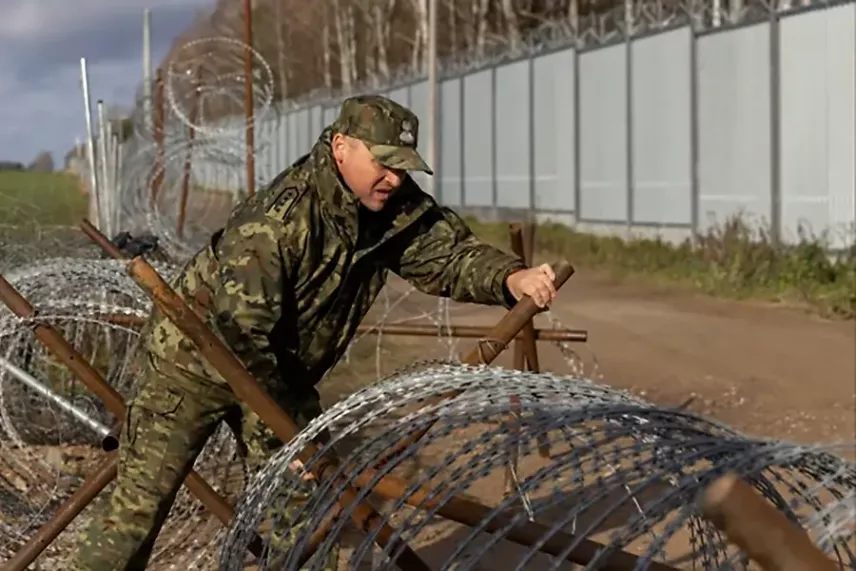
Poland aims to complete a border wall topped with barbed wire and close its border with Belarus by next summer in a bid to stop the influx of migrants. Additional infrastructure work along its 400-kilometer (250-mile) eastern border, announced by Donald Tusk’s government earlier this year, is on track to be completed by mid-2025, said Maciej Duszczyk, Poland’s deputy migration minister. Once completed, “it will be as close to 100% border security as possible,” he said.
Poland began building the border wall and installing barbed wire in late 2021, when President Alexander Lukashenko’s Belarusian regime first facilitated the arrival of thousands of migrants to Poland and neighboring Baltic states. Many of these migrants received sponsored flights and visas to fly from the Middle East and Africa to Moscow or Minsk before being bused to the Polish border. Tusk, who took office a year ago, has made combating Russia’s “hybrid war” a top priority of his agenda, including expanding and sending more troops to a buffer zone along the border with Belarus. His government is installing night-vision and thermal cameras, building a new road to patrol the border, and strengthening a five-metre-high steel fence topped with barbed wire that the previous government built in 2022. Poland is spending more than 2.5 billion zlotys (€587 million) on fortifying the border, half of which is being provided by Tusk’s government, Duszczyk said. “I hope and believe that this artificial migration route will be closed next summer,” Duszczyk said. However, he said Warsaw must be prepared for a new attempt by Lukashenko to “escalate the conflict” and sabotage Poland’s fortified border infrastructure.
European Commission President Ursula von der Leyen said earlier this month that Brussels would provide €170 million to countries neighboring Russia and Belarus to counter “hybrid threats from Russia and Belarus that unacceptably weaponize migration.” Warsaw will also build a new road in the coming months that will allow Polish troops to respond more quickly to possible security breaches, Duszczyk said.